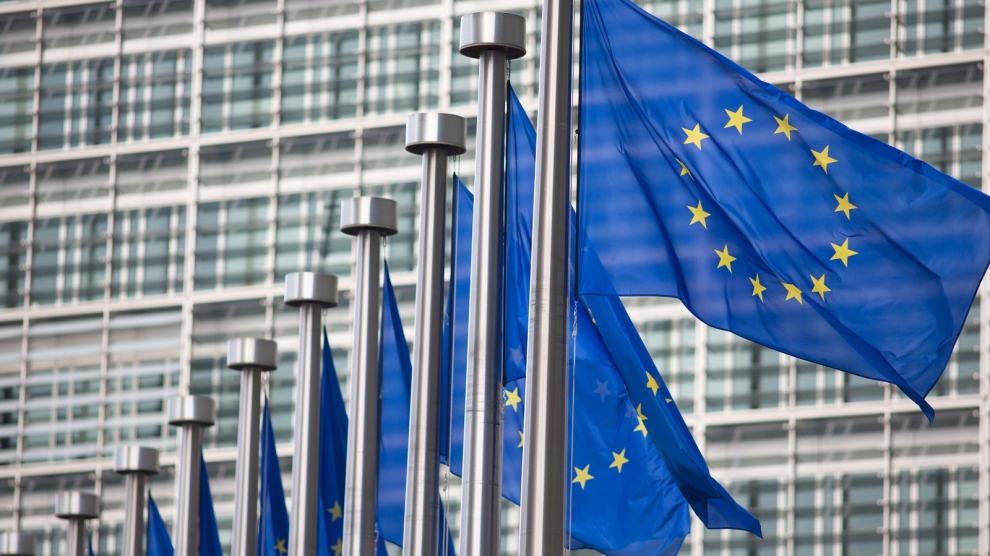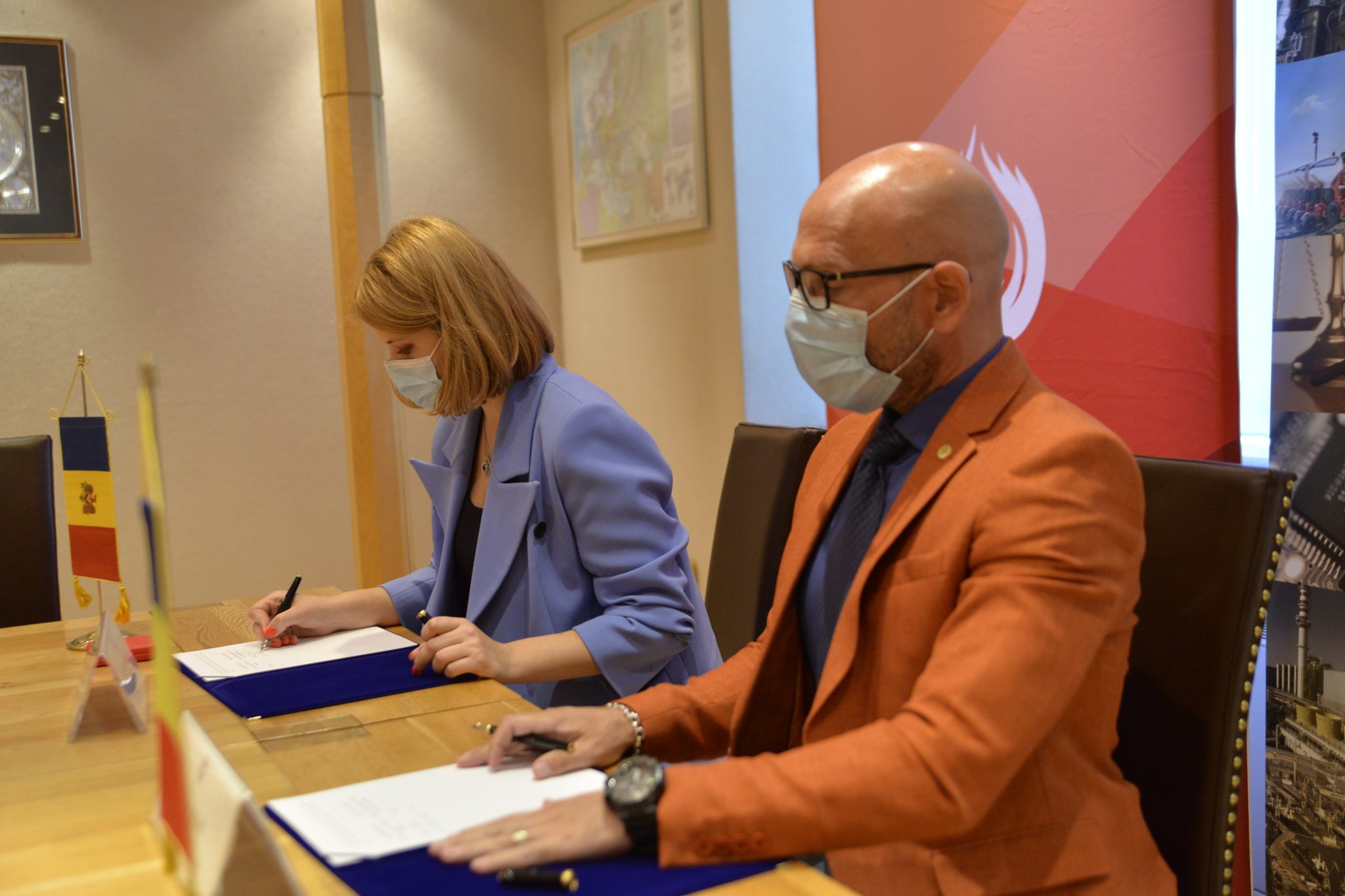Economy
Analysis: President's initiatives were put on agenda and reform legal framework started to be examined
Reading Time: 5 minutesThe three initiatives of the head of state were put on the agenda. Only a day after they were launched, the Government endorsed a draft law on amendment of some legislative acts with a view to launch
Author Vlad Bercu, BASA-press
The three initiatives of the head of state were put on the agenda. Only a day after they were launched, the Government endorsed a draft law on amendment of some legislative acts with a view to launch the economic activity liberalization.
What seemed at a first glance a quasi-total surprise turned out to be an action worked out long ago. Sources close to international financial bodies say that Moldovan authorities intended to launch these initiatives in February, but the IMF opposed to the intention to introduce the zero tax on reinvested profit and fiscal amnesty.
The reform will rely on three pillars:
a program on legalization of capital; a fiscal amnesty; and reformation of the taxation system applied to legal entities.
President Voronin’s initiatives are appreciated by some managers as revolutionary and courageous, while other analysts are reserved about the effects of the planned reform.
 "There are 10 days until the economic revolution starts", headlined "Nezavisimaya Moldova" paper on Wednesday. A fiscal paradise for investors, including foreign ones, an intensive development of Moldovan economy with the reduction of the illegal one, salary raises in the real sector and foundation of a middle class: this is how president’s initiatives are seen by other analysts.
"There are 10 days until the economic revolution starts", headlined "Nezavisimaya Moldova" paper on Wednesday. A fiscal paradise for investors, including foreign ones, an intensive development of Moldovan economy with the reduction of the illegal one, salary raises in the real sector and foundation of a middle class: this is how president’s initiatives are seen by other analysts.
"Amnesty of capital is brilliant. Zero tax on reinvested profit is brilliant too. As to the fiscal amnesty, we’ll have to think more about it", stated Alexandr Kopanski, Director General of S&T Mold. "Our economy needs unusual solutions. We cannot delay it anymore", estimated Yakov Tihman, Director General of Efes Vitanta Moldova Brewery, one of the most powerful in Moldova.
Reduction of the invisible economy, passing a good part of the illegal turnover of cash into the official money circulation, reduction of the room where corruption may develop: these are just some of the stated goals pursued by the three initiatives.
"Fiscal preferences are not an absolute. I’d rather say it’s vice versa: most companies are used to pay taxes, thus contributing to the society’s needs. The fiscality level is not as important as other informal stuffs such as legislative stability, a legal system that would protect businesses against interferences, many other factors", stated Ion Sturza, Director General of Rompetrol Moldova, on BBC.
"The zero tax on reinvested profit is a good idea. Indeed, it is an international practices widely applied to contribute to enhancing investments in the economy", says Alex Oprunenco, Program Director at "Expert-grup" Analytical Center. However, he said, on the other hand, fiscal amnesty is a moral hazard. I mean, all economic units that observed tax legislation and paid taxes in time see that it is possible to avoid paying them. This triggers several perverse moments for those who got used to paying. They might think approximately this way: "why should they pay if a fiscal amnesty is about to be applied and we are paying the money goalless".
Fiscal amnesty and zero tax do not fit into the commitments made before international financial institutions and, first of all, before the International Monetary Fund, Alex Oprunenco also believes.
Although Veaceslav Ionita, Project Coordinator at IDIS "Viitorul", claims that the effect for economic units indeed might be stimulating, he estimates that "the income tax does not represent such a big pressure in Moldova" and that "completely other factors stop economic and business development", justice and corruption being on the first row. What should really "concern us is the business climate that is very and very noxious". The amnesty will stimulate the inefficiency of those who work poorly and will disfavor those who pay all taxes.
The analyst also believes that the budget which relies on consumption "will be even more connected to it". It’s not the income tax that makes economic units to bribe, but the social insurance contribution that is very high. The added value tax is high too.
Dinu Armasu, Executive Director of the Foreign Investors Association, thinks that the fact that dividends will not be subject to a double taxation is positive aspect. It will be easier to manage the exemptions the government will provide to investors and small enterprises. At the same time, he says that social taxes are high; consequently many economic units apply to different tricks in order to more or less really remunerate their staffs.
The way things are going on, legalization of capital and fiscal amnesty announced by the head of state will start as early as in the first half of this year.
What do the amendments to the Tax Code, which are likely to be adopted in maximum two weeks, provide for?
Legalization of the capital will be carried out by letting individuals and legal entities residing in Moldova to submit voluntary declarations on the capital they own and for which at the moment of its acquisition no taxes had been paid from their real value.
Legal entities will have the possibility to legalize only their material and financial assets (real estate, securities, shares); and individuals, their financial means, securities, real estate, shares. They will pay 5% of the amount of the legalized financial means for their legalization. For other types of assets a tax of 5% will be paid of the difference between the stated value of the legalized capital and the earlier stated value of these assets.
To prevent any accusations of transforming Moldova into an off-shore zone, legalization by legal entities of their financial means will not be allowed in order to reduce the risk of Moldova becoming a money laundering center for off-shore companies. The legalization will start when the law enters into force and will be over on 1 January 2009, for securities, real estate, shares, and on 30 December 2008 for financial means.
To provide more reliability to this process, fiscal and economic control bodies will not be entitled by law to verify the sources of the legalized capital, excepting cases of money laundering which are strictly stipulated by law.
Fiscal amnesty will comprise the arrears reflected in the record system of the State Fiscal Service, including special records, in accordance with the situation on 1 January 2007, for all types of unpaid taxes and fines on the date the law enters into force, including the postponed and redistributed ones in accordance with the applicable legislation. These arrears are to be annulled.
According to the draft law, the fiscal commitments for which court cases have been opened since 1 January 2007 are also to be subject to amnesty.
On this date, the debts of economic units before national budget amounted to 2 billion lei.
The government considers that out of these debts, about 10-15% of the total debts plus fines and penalties (200-300 million lei), including on the account of alienation of seized assets, may practically be collected to the public budget.
Fiscal management bodies will be forbidden by law to carry out controls on the correctness of calculation and payment of compulsory payments for the fiscal periods before 1 January 2007.
A zero income tax shall be established for the reinvested profit, and the profit that will be distributed among the shareholders or associates in the form of dividends will be subject to a 15% tax.
Legalization of capital and fiscal amnesty might be initiated already in the first half of this year, as soon as these laws enter into force. As to the reduction of the tax, it may become possible after 1 January 2008.
Economy
Moldova will receive a disbursement of 36 million euros as part of the the Economic Recovery Plan

This week, the European Commission approved the disbursement of 36 million euros in grant money for the Republic of Moldova. The announcement was made by Deputy Director-General for Neighbourhood Policy and Enlargement Negotiations at the European Commission, Katarina Mathernova, who paid an official visit to the Republic of Moldova between September 13-15, together with Managing Director for Russia, Eastern Partnership, Central Asia, Regional cooperation and OSCE, at the European External Action Service, Michael Siebert.
The EU officials had meetings with President Maia Sandu, Minister of Foreign Affairs and European Integration, Nicu Popescu, Speaker of Parliament, Igor Grosu, Prime Minister of the country, Natalia Gavrilita, as well as key representatives of Government, international financial institutions and the civil society, according to a press release issued by the Delegation of the European Union to the Republic of Moldova.
Beside such topics as the EU-Moldova relations and prospects, the priorities of the reform agenda of the new Moldovan Government, preparations for the Eastern Partnership Summit at the end of the year and the Transnistrian conflict settlement, the officials also discussed the EU assistance in support of reforms and the Economic Recovery Plan for Moldova, which was announced in June with a total EU support of 600 million euros over the next 3 years.
“The first measures under the Economic Recovery Plan will shortly materialize, with the expected disbursement of 36 million euros in grant money under budget support programmes to support the authorities’ efforts to fight against the consequences of the pandemic. Moldova can count on EU’s assistance on its path to reforms and to recovery, bringing tangible results to citizens,” Katarina Mathernova stated.
The plan is based on assistance provided by the European Union through various bilateral and regional instruments, aiming to mobilize the funds in the form of grants, loans, guarantees and macro-financial assistance.
“The Economic Recovery Plan for the Republic of Moldova involves much more, not just this financial support provided immediately. It must help digital transformation, strengthen infrastructure, energy efficiency, education and support small and medium-sized enterprises,” the EU official also said.
As Prime Minister Natalia Gavrilita informed, “The Economic Recovery Plan and the 5 flagship initiatives for Moldova in the Eastern Partnership will directly contribute to the reform and consolidation of institutions, stimulate long-term socio-economic development, bring direct benefits to citizens, and unleash new economic opportunities through promoting the green agenda and digitization. Small and medium-sized enterprises (SMEs) have been hit hard by the crisis. Promoting and diversifying access to finance and reducing collateral requirements will be essential in supporting economic operators. We are grateful to the EU partners who will launch two programs to support 50 000 independent Moldovan SMEs to adapt to the new conditions.”
President of the Republic of Moldova, Maia Sandu, welcomed the decision of the European Union to disburse about 745 million lei in grant money, as the official page of the President’s Office announced. “EU support comes after a long period of freezing of European assistance, caused by former governments. We managed to relaunch the political dialogue with the European Union and resume financial assistance. The Republic of Moldova is gradually regaining the trust of its strategic partners. This European support is also a signal of encouragement for the new Government team in its commitment to clean up the institutions, fight corruption and launch development programs in the country,” said Maia Sandu.
Photo: unknown
Economy
Romania and Moldova signed a partnership memorandum pledging to cooperate in promoting their wines

The Chamber of Commerce and Industry of Romania (CCIR) and the National Office for Vine and Wine (NOVW) of the Republic of Moldova signed, last week, a memorandum of cooperation on organizing joint promotional activities in the markets of common interest, as the CCIR announced.
China, Japan or the USA are just some of the markets targeted by the Romanian and Moldovan institutions. The memorandum also involves advertising activities for wines from common indigenous varieties, promoting the oeno-tourist region, developing a tourist route in the two states, exchange of experience, study visits, and mutual support in identifying new export opportunities. “We are very confident that this collaboration between our organizations will lead to sustainable economic growth and a higher degree of well-being among Moldovans and Romanians,” claimed Deputy Secretary-General of CCIR, Bogdan Visan.
On the other hand, Director of the NOVW, Cristina Frolov, declared that no open competition with Romania is aimed at the governmental level of the Republic of Moldova. “This request for collaboration is a consequence of the partnership principle. Romania imports 10-12% of the wine it consumes, and we want to take more from this import quota. Every year, the Romanian market grows by approximately 2.8%, as it happened in 2020, and we are interested in taking a maximum share of this percentage of imported wines without entering into direct competition with the Romanian producer,” the Moldovan official said. She also mentioned that Moldova aims at increasing the market share of wine production by at least 50% compared to 2020, and the number of producers present on the Romanian market – by at least 40%.

Source: ccir.ro
**
According to the data of the Romanian National Trade Register Office, the total value of Romania-Moldova trade was 1.7 billion euros at the end of last year and over 805 million euros at the end of May 2021. In July 2021, there were 6 522 companies from the Republic of Moldova in Romania, with a total capital value of 45.9 million euros.
The data of Moldova’s National Office of Vine and Wine showed that, in the first 7 months of 2021, the total quantity of bottled wine was about 27 million litres (registering an increase of 10% as compared to the same period last year), with a value of more than one billion lei, which is 32% more than the same period last year. Moldovan wines were awarded 956 medals at 32 international competitions in 2020.
Photo: ccir.ro
Economy
Moldova’s hope to be a top walnut exporter and its main difficulties

The Republic of Moldova has perfect weather conditions for growing walnut trees, that creating a great potential of walnut production and trade, especially on international markets, where the demand is way higher than the product’s supply. National and international experts believe that the country’s walnut production industry is on the verge of important transformations, which could lead to increased yields, quality and competitiveness worldwide.
According to authorities, Moldova exports 34-35 thousand tons of walnuts in shell, which is about 7% of the total export of fruit and 5% of the total export of horticultural products. The export value is assessed as being $120 million, that being 57-60% of the total fruit export value and about 50% of horticultural export value. Most of walnut crops are exported to the EU countries, such as France, Germany, the Netherlands, Romania and Austria. The country’s exports were among the world’s top 10 when it comes to the highest dollar value of the product during 2020.
Viorel Gherciu, Minister of Agriculture and Food Industry, pointed out that the production in the domestic walnut industry has increased by 55% in the last five years, which ranks Moldova among the main producers in the world.
“The biggest opportunity for this industry is that we are in the geographical proximity of the largest walnut import area in the world, which is the European Union, with almost 40% of total imports in the world. We are on the EU border, with privileged relations, with an Association Agreement. We already enjoy a good relationship in working with European importers, they trust our processors. A very close collaboration has been created and this is, in fact, the guarantee for those who invest in the area,” claimed the president of the Walnut Producers Association, Oleg Tirsina.
The data provided by the National Bureau of Statistics show that there are 34.7 thousand hectares of walnut plantations in the country. 20.90 hectares are represented by orchards. 75% of planted orchards are formed of old varieties trees. 30-35% of the exported production comes from orchards, the rest comes from individual farmers and plantations along the roads. This means that the quality of walnut production is not at its maximum potential. Developing commercial plantations through orchards modernization and extension of walnut varieties would provide double yield and better quality, experts say.
Governmental support in the form of subsidizing solutions, foreign investments and credit options are indispensable for the industry development. One of the financing options is the credit line of the European Investment Bank Project. Since 2016, 15 producers and processors of nuts, almonds and hazelnuts have benefited from these loans with the total amount of investments worth 8.7 million euros. A further extension of the project would provide another 60 million euros for the modernization of the horticultural sector in general and for harvesting organic walnuts in particular.
Photo: heymoldova.com





















